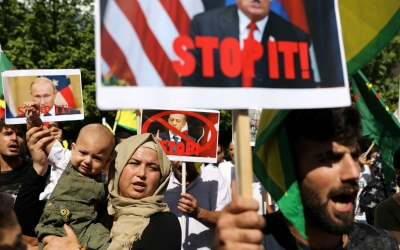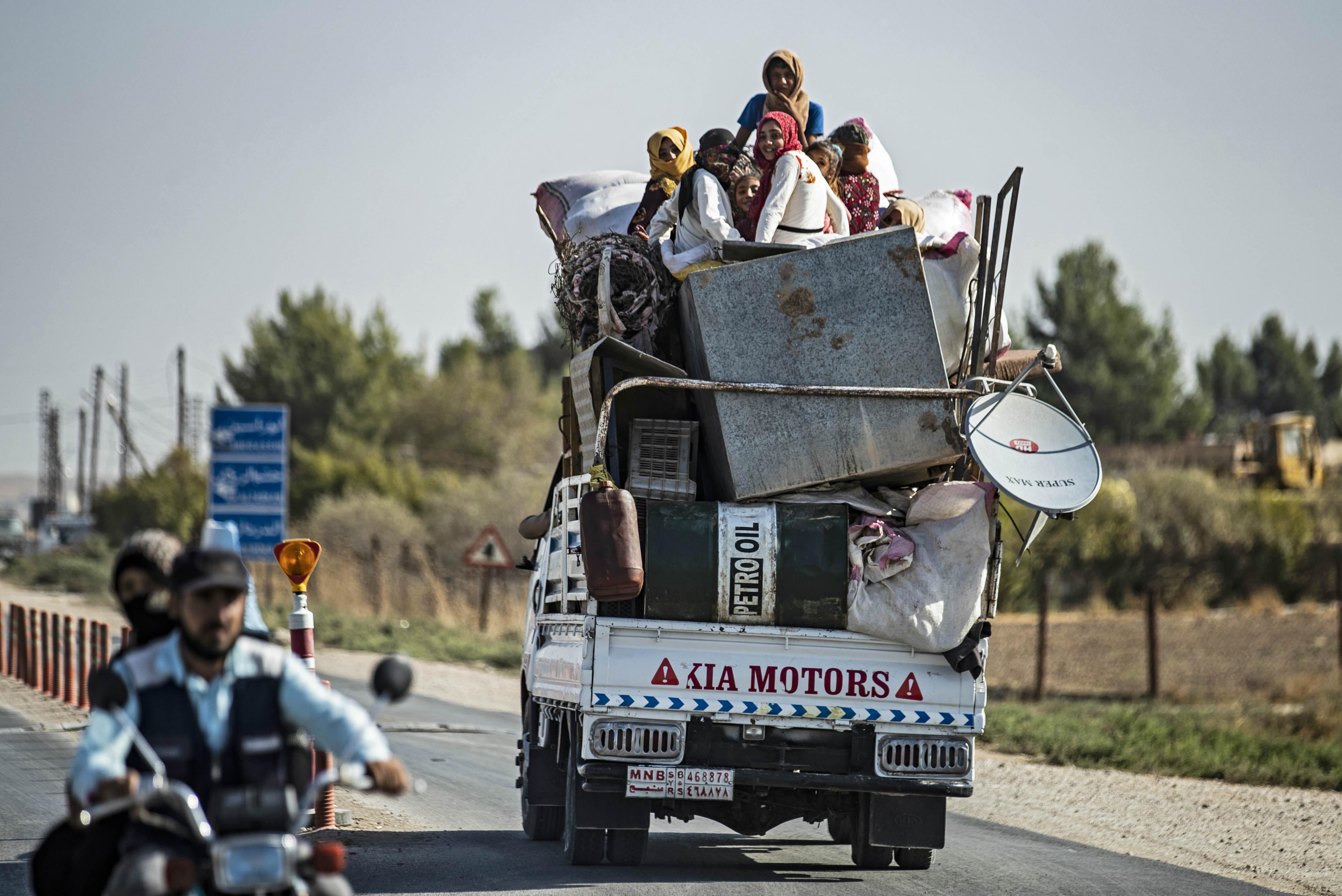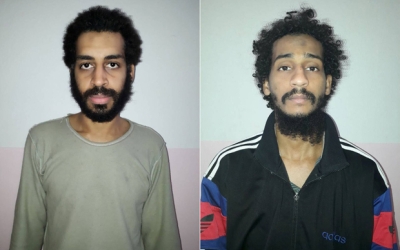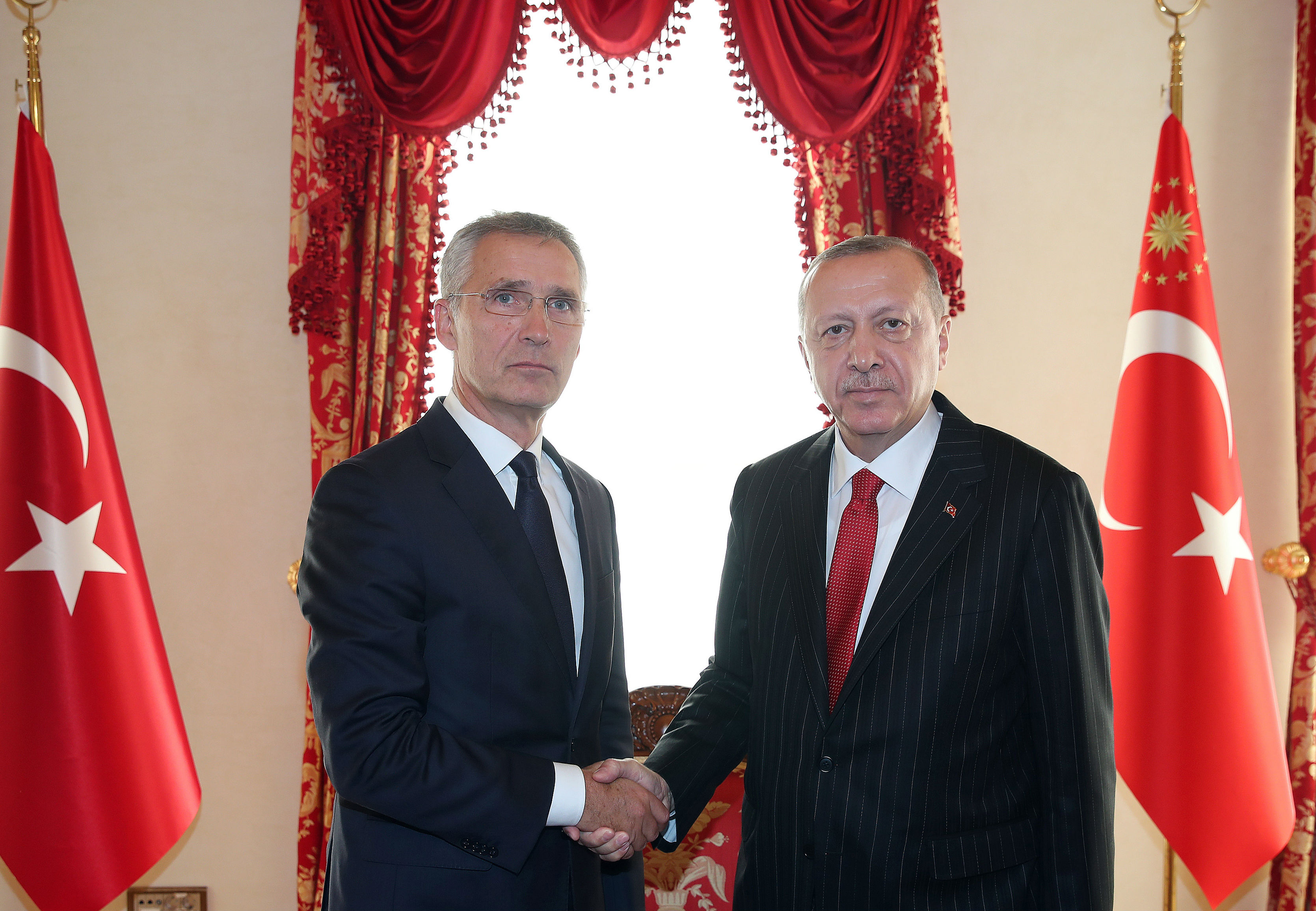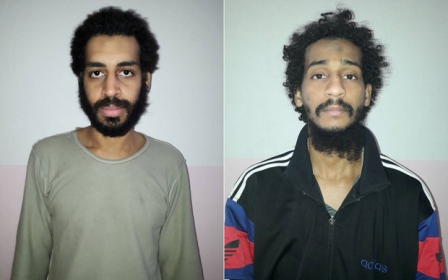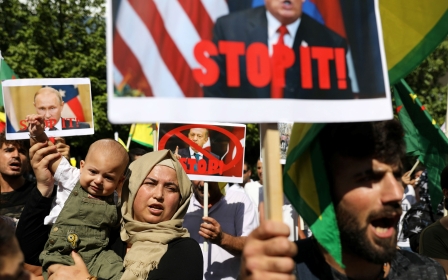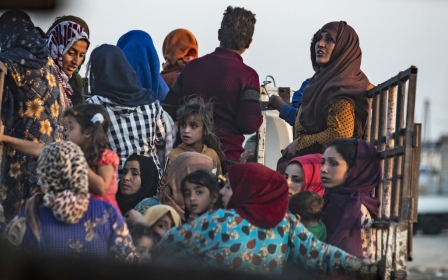Death toll mounts as thousands flee Turkish bombardment in Syria
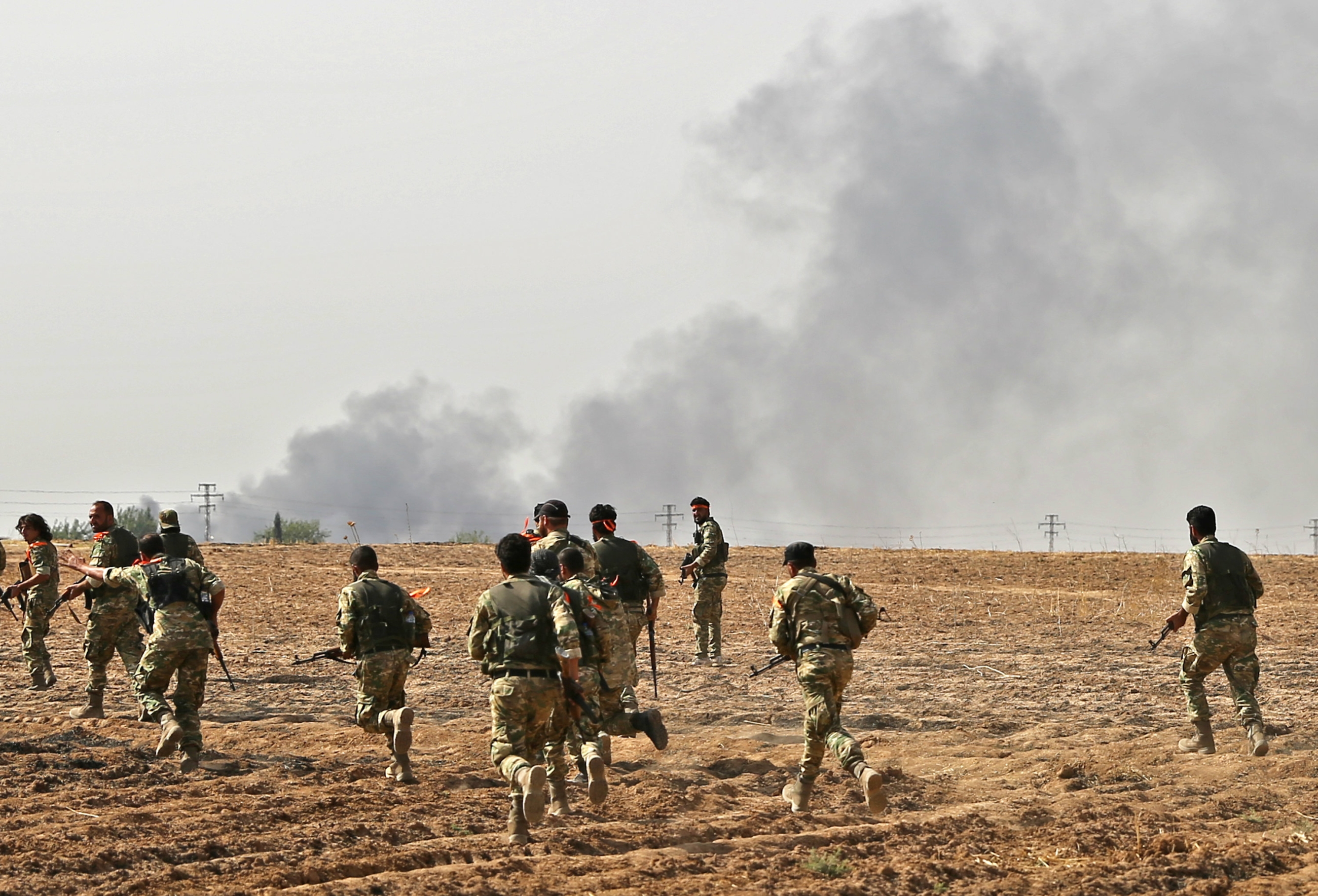
Turkish warplanes and artillery hit Kurdish militia targets in northeast Syria on the third day of an offensive that has killed scores of people, forced tens of thousands to flee and turned Washington's establishment further against US President Donald Trump.
The incursion, launched after Trump withdrew US troops who had been fighting alongside Kurdish forces against the Islamic State group (IS), has opened a new front in the eight-year-old Syrian civil war and drawn fierce international criticism.
In Washington, Trump suggested that the United States could still mediate in the conflict and raised the possibility of imposing tough sanctions on Turkey.
NATO member Turkey says the operation is necessary for border security against the YPG militia, which it designates a terrorist group because of its ties to the outlawed Kurdistan Workers Party (PKK).
Ankara has also said it intends to create a "safe zone" for the return of millions of refugees to Syria.
On Friday morning, Turkish warplanes and artillery struck around Syria's Ras al-Ain, one of several border towns that have been the focus of the offensive.
Gunfire could also be heard inside the town, said a journalist for the Reuters news agency in Ceylanpinar, on the Turkish side of the border.
A convoy of 20 armoured vehicles carrying Turkish-allied Syrian rebels entered Syria from Ceylanpinar on Friday, he said.
Some made victory signs, shouted "Allahu akbar" (God is great) and waved Syrian rebel flags as they advanced towards Ras al-Ain.
Two people died in the Turkish town of Suruc near the Syrian border in a mortar attack launched from Syrian territory, Turkey's state-owned Anadolu news agency said on Friday.
Staff flee only public hospital
Some 120 km to the west of Ras al-Ain, Turkish howitzers resumed shelling near the Syrian town of Tal Abyad, a witness said.
Seven civilians were killed in and around the town on Friday, according to the Syrian Observatory for Human Rights, a UK-based activist group.
Four of them were killed by a Turkish air strike in Tal Abyad while the three others were killed by snipers around the border town, the Observatory said.
"In these moments, Tal Abyad is seeing the most intense battles in three days," Marvan Qamishlo, a spokesman for the YPG-dominated Syrian Democratic Forces (SDF) said.
SDF forces had recovered a hamlet early in the morning, he said.
A facility in Tal Abyad, the only public hospital in the region, was forced to shut after most of its staff fled from bombings over the past 24 hours, Doctors Without Borders (MSF) said in a statement on Friday.
"The hospital of Tal Abyad, supported by MSF, is from now on closed because most of the medical workers have left with their families," the French charity said, adding that the border town was now practically deserted.
More than 70,000 people from Ras al-Ain and Tal Abyad have been displaced by escalating violence, according to the UN World Food Programme, which helps feed close to 650,000 people in northeastern Syria.
Darbasiya, some 60km to the east, was also reported to be largely deserted following the exodus.
The Observatory said Turkish forces had seized two villages near Ras al-Ain and five near Tal Abyad.
A Syrian rebel forces spokesman said the towns were now surrounded after the fighters had seized the villages around them.
Turkish soldier killed
Turkey's defence ministry said that in overnight operations the Turkish military and its Syrian rebel allies killed 49 Kurdish fighters. It says it has killed hundreds of fighters since Wednesday.
The ministry said one Turkish soldier was killed in a clash on Thursday during the offensive and that three soldiers had been injured.
Overnight, clashes erupted at different points along the border from Ain Diwar at the Iraqi frontier to Kobane, a city also known as Ain al-Arab, more than 400km to the west.
Turkish and SDF forces exchanged shelling in the Syrian Kurdish-controlled city of Qamishli among other places, the SDF's Qamishlo said.
"The whole border was on fire," he said.
On Friday, a car bomb went off outside a restaurant in Qamishli, a SDF official said.
The Syrian state broadcaster al-Ikhbariya, quoting its correspondent, said the blast had caused deaths and injuries.
Why is Turkey invading northeast Syria?
+ Show - HideWho is fighting who?
Democratic Union Party (PYD)/Peoples Protection Units (YPG)
Founded in 2003, the PYD and its military wing the YPG are the ideological sister group of the Kurdistan Workers Party (PKK), which has fought a decades-long conflict with Turkey.
Following the beginning of the Syrian civil war in 2011, the PYD managed to take control of much of the Syria's north in the security vacuum that followed.
The group claims to espouse an ideology called "democratic confederalism", based on the ideology of PKK founder and leader Abdullah Ocalan, who has been in prison in Turkey since 1999.
Turkey
Turkey has long viewed the growth of the PYD with deep concern, and a peace process between Turkey and the PKK collapsed in 2015 in part over the spread of the Syrian Kurds' influence.
Since then, Erdogan has repeated his determination that he would "never allow the establishment of a Kurdish state in northern Syria".
What does Turkey want in northern Syria?
Turkey fears that a pro-PKK entity on its southern border would inevitably become a launchpad for attacks on Turkey.
In addition, Turkey wants to expell Syrian refugees from Turkey and resettle them in a "safe zone" it plans to create in northern Syria.
Turkey has the largest refugee population in the world, and the presence of Syrians in the country has increasingly led to animosity from Turks who blame them for crime, unemployment and the dilution of Turkish culture.
What does the PYD want in northern Syria?
The PYD's long-stated aim has been the creation of a statelet on the basis of Ocalan's ideology, as well as protecting Kurdish rights.
The area controlled by the PYD, known as Rojava, has established autonomy with networks of local councils and forums that aim to promote decentralised democracy - though the group has been accused of enforcing a one-party rule in the region.
What does the US-led coalition want?
Donald Trump was elected on a platform of isolationism and has touted the defeat of IS as the sole reason for US involvement in Syria - now that has largely taken place, Trump has argued the United States has no need to remain.
The biggest fear for the US and its allies is that Turkey's takeover of PYD-controlled areas could see the release of some of the 15,000 IS fighters previously captured by the Kurds and their allies.
What does the Syrian government (and its allies) want?
The Syrian government, as well as its close allies Iran and Russia, are happy about the US' decision to withdraw from the north, but have expressed concern about the violation of Syria's sovereignty by Turkey.
Syrian President Bashar al-Assad hopes that, when faced with the threat from Turkey, the PYD will throw their lot in with him in order to avoid total defeat.
Assad has repeatedly said he aims to regain control of all of Syria, and if the PYD was to ally with him formally, it would bring the largest area hitherto out of his control back under Damascus' influence.
At least 32 fighters with the SDF and 34 Turkey-backed Syrian rebels have been killed in fighting, while 10 civilians have been killed, the Observatory said.
The SDF said 22 of its fighters were killed on Wednesday and Thursday.
They added on Friday that five IS fighters had escaped from jail in Qamishli as a result of Turkish shelling.
In Syria's al-Bab, around 150km west of the offensive, some 500 Syrian rebels were set to head to Turkey to join the operation, CNN Turk reported.
It broadcast video of the rebels performing prayers in military fatigues, their rifles laid down in front of them, before departing for Turkey.
The SDF said Turkish air strikes and shelling had killed nine civilians.
In apparent retaliation by Kurdish-led forces, six people, including a nine-month-old baby, were killed by mortar fire into Turkish towns, Turkish officials said.
Camp evacuated
The SDF has been the main allies of US forces on the ground in the battle against IS since 2014.
It has been holding thousands of captured IS fighters in prisons and tens of thousands of their relatives in detention.
The autonomous Kurdish administration in northeast Syria said on Friday that it had started evacuating a camp housing 7,000 displaced people to protect them from Turkish shelling.
The Mabroka camp, which lies 12km south of the border, was hit by shelling "which posed a direct threat to the lives of more than 7,000 displaced people," a statement said.
The civilians are due to be transferred to a camp known as Arisha, which is located further south in a region that has not been targeted by Turkey.
The Kurdish statement said artillery rounds had also struck Ain Issa camp, which lies further west and houses around 13,000 people.
Among them are more than 700 relatives of men suspected of being members of IS.
No transfer was under way from Ain Issa yet but the Kurdish authorities said they were looking for a solution.
Breakout fears
The Kurds and many foreign leaders have voiced concern that the Turkish invasion would divert key security forces away from the camps where IS suspects and their families are held, and create an opportunity for mass breakouts.
A US official told Reuters there are currently 30 detention centres holding IS prisoners across northeast Syria.
The centres hold 11,000 IS detainees, of which 2,000 are foreign fighters, the official said.
"For now the... prisons remain and they are being guarded by the SDF. There has been no change there," the official said.
The US has received a high-level commitment from Turkey on taking responsibility for IS captives but had not yet had detailed discussions, the official said.
'Very, very tough' sanctions
Trump said in a Twitter post on Thursday: "We have one of three choices: Send in thousands of troops and win Militarily, hit Turkey very hard Financially and with Sanctions, or mediate a deal between Turkey and the Kurds!".
"I hope we can mediate," Trump said when asked about the options by reporters at the White House.
Without elaborating, he said the US was "going to possibly do something very, very tough with respect to sanctions and other financial things" against Turkey.
On Friday, Trump announced an executive order giving the Treasury Department wider authority to slap sanctions against Turkey and its affiliates that could "shut down the Turkish economy", Treasury Secretary Steven Mnuchin said.
Mnuchin stressed that the sanctions had not yet been activated, but that Trump has given the approval to issue them.
France's European affairs minister said on Friday that next week's European Union summit will also discuss sanctions on Turkey over its action in Syria.
European Council President Donald Tusk chastised Turkish President Recep Tayyip Erdogan on Friday for threatening to send millions of Syrian refugees to Europe and blasted the Turkish operation in northern Syria as destabilising the region.
Tusk, who spoke after meeting Cypriot President Nicos Anastasiades, said Turkey's unilateral military operation was of grave concern and should halt while Turkey's security concerns should be addressed through political and diplomatic means.
In a speech on Thursday, Erdogan called on the European Union to "pull itself together" and threatened that if the bloc labelled the operation an occupation he would "open the gates and send 3.6 million refugees" to Europe.
Italy's Prime Minister Giuseppe Conte also accused Erdogan of blackmail on Friday and said the military operation should immediately end, while Sweden's parliament demanded an EU arms embargo.
Nato chief voices 'serious concerns'
Nato Secretary General Jens Stoltenberg on a visit to Istanbul expressed "serious concerns" on Friday about Turkey's ongoing operation and called for "restraint".
"I shared... my serious concerns about this ongoing operation and the risk of further destabilisation of the region," Stoltenberg, who met with Turkish Foreign Minister Mevlut Cavusoglu and Erdogan, told reporters.
At a joint news conference, Stoltenberg and Cavusoglu were asked about media reports that another Nato ally, Spain, might pull out its Patriot missiles from southern Turkey in response to the operation in Syria.
"We expect Nato allies to continue to provide support to Turkey because this is something that was agreed," said Stoltenberg.
"Turkey is on the frontline... We are here to protect not just Turkey but to protect ourselves," he added.
Cavusoglu said it underlined why Turkey had chosen to take delivery this summer of a Russian missile defence system, the S-400, a move which sparked significant concern among its Nato allies.
Middle East Eye delivers independent and unrivalled coverage and analysis of the Middle East, North Africa and beyond. To learn more about republishing this content and the associated fees, please fill out this form. More about MEE can be found here.


